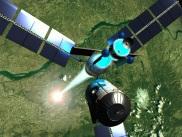[quote name='A Brain in a Vat' timestamp='1311625764' post='4840177']Why is it you people find it so hard to read? My vacuum cleaner seeks power just as you seek food. It literally looks for power. It wanders around my house looking for it until its food so that it can alleviate its negative feelings of "need food".
I would argue that your vacuum cleaner does not search the house seeking food. Most likely your vacuum cleaner waits until it is given food. The red light does not indicate that it is still hungry or is starving. It indicates that it is about to stop eating or has stopped eating. Because the qualitivative difference between the vacuum and the human is that the vacuum does not electricity to continue its existence. It can go years if not decades without electricity. And still function fine and still know what to do and how to do it. The human needs food to continue its existence. Though like the vacuum it cannot function properly or at all without a food source, unlike the vacuum prolonged absence of that food source will cause its death. Its functions will permanently cease. The human can never pick up where it left off 3 decades ago, because the human is no longer, but an object with no function. So hunger for the vacuum if even if programmed to act erratically does not have the same ramifications or even function as hunger does for a human.
Thanks.

[/quote]
A person dies simply because damage is being done to them constantly by their own bodies (metabolic by-products) and their environment (competing organisms, chemicals, and even sunlight). If that damage could be prevented, they could live forever, like a robot.
Some species go into hibernation, and apparently have to wake up periodically so that their immune systems can check to see if they got infected while in low-power mode. If you went into long-term shutdown, you'd eventually be eaten by bacterial and fungal infections, or from larger scavengers/predators if you didn't have shelter.
Careful cryogenics might be able to put someone in permanent stasis, but we aren't sure how to prevent THAT from causing damage as well.
A robot doesn't have as many things that can destroy it, but it still has some: Its plastic and rubber can be weakened by heat and sunlight, its metallic parts can be rusted, its fluids may evaporate, solidify. It may become saturated with dust. Its battery acid may eventually erode through its casing and destroy whatever it makes contact with. Eventually, the environment WILL destroy it. It just takes longer because there aren't as many things actively destroying it.
Presumably the robotic vacuum in this discussion doesn't have self-repair mechanisms. If it did, those would require energy or material resources of some kind. If the robot was programmed with behavior to seek those resources, it would have most of the qualities of simple living organisms.
The final major difference is that all living beings have a way to manufacture more of themselves. Give a robot the programming and ability to make more of itself, add that to the abilities we've already (hypothetically) given it, and I see no reason not to call it a living thing.








